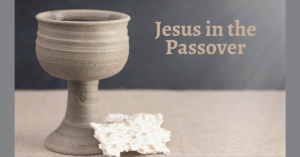As we enter into this Easter season, it is clearly important to understand the true reason why we celebrate Easter. In our culture, much of this holiday is either focused on spring as the birth of new life or on the Easter bunny as bringing special gifts of chocolate and candies to children. But that is not why Christians celebrate Easter.
Easter is the time to celebrate what God has done for us. It is a time to teach and remember that the God of this universe, the Creator of all things, willingly sacrificed His life in order to redeem His creation and then resurrected from the dead on the third day.
The resurrection is the most important part of the Christian faith. Without it, as Paul says in 1 Corinthians 15:14, our faith is in vain. We are still dead in our sins without hope for redemption. Therefore, the most important fact to establish in the Christian faith is that Jesus did resurrect from the dead. However, we cannot just stop at establishing the resurrection as a fact. It is what we choose to do with this fact that becomes crucial.
As we go back to reflect on the events that happened during that Passover feast nearly 2,000 years ago, one of the most important questions to consider from Jesus’ trial, crucifixion, and resurrection came from Pontius Pilate. The Jewish religious leaders finished their “trial,” (a court proceeding that violated all the Jewish laws of how court proceedings were to be conducted), and they brought Jesus before the Roman governor, Pontius Pilate. As being under Roman rule, the Jews could not execute Jesus themselves. They needed the Romans to execute Jesus. So they brought charges against Jesus that would be a threat to Rome – the title of the King of the Jews.
As the chief priests and elders continued to make accusations against Jesus, He remained silent, much to the amazement of Pilate. Pilate, however, could see through the ruse of the religious leaders, and according to Matthew’s Gospel, Pilate knew it was out of envy that the religious leaders had even brought Jesus before him. Plus, Pilate’s wife begged him to leave Jesus alone, referring to Jesus as a “righteous man.” But though he knew Jesus was innocent, he left the fate of Jesus up to the crowds. It was customary at this time of year that the governor would release a prisoner. Pilate thought surely the Jews would prefer him to release Jesus, rather than the prisoner Barabbas. But the crowds chanted for Pilate to release Barabbas.
And Pilate asked that critical question: “What then shall I do with Jesus who is called the Christ?” Somewhere Pilate recognized the innocence of Jesus. He was probably even convinced, like his wife was, that Jesus was righteous. He wanted nothing to do with the death of Jesus, as he told the crowds he was “innocent of this man’s blood.” To some, it may seem like Pilate was trying to help Jesus. But was he really innocent of His blood? As the governor, Pilate had the power to decide the fate of Jesus. He could have declared Jesus to be innocent and set Him free. Yet he feared the people’s opinion and reaction more than he feared God. He was more focused on appeasing others than on doing what was right.
Granted, Jesus’ crucifixion had been foreordained by God. This was the only way for mankind to be redeemed. Had there been another way for salvation, then Jesus would not have gone to the cross. But Pilate chose to play a role in the crucifixion of Jesus, just like Judas. Jesus was going to be arrested by the authorities, with or without Judas’s betrayal. Yet Judas chose to be used by Satan to betray Jesus, an action he deeply regretted.
Pilate’s question though is one we all must answer at some point. We may know the facts about the crucifixion and resurrection. But what are you going to do with those facts? What are you going to do with this Jesus who is called the Christ?
Are you going to do like Pilate and listen to the worldly voices of the crowd that chant to crucify Jesus? In our culture, the crowds would say to ignore Jesus, that you can be your own authority and don’t need Jesus in your life. Or maybe the crowds mock Jesus and those who follow Him, saying they are unintelligent or weak for following Him. Sometimes the crowds say that following the world is more fun than following Jesus. Or some may simply say Jesus was a pretty good teacher, but He isn’t God. Will that be the influence over your decision on what to do with Jesus? Or will you rightly recognize Jesus as God and fall at His feet and call Him Lord?





1 thought on “What Will You Do With Him?”
That is so good. I have people in my life I pray for every day in hopes that they would take a serious look at the claims of Jesus and the facts involving His life, death and resurrection. I pray God would touch their hearts and open their eyes. The other side of that coin is this question: “What will they do without this Jesus who is called Christ.” What is my hope, what is there if God had not ordained to redeem His creation. Jesus wants us to look not to the past or the future but to the present and eternity. The present is that point in time which touches eternity, as so eloquently expressed by C S Lewis. If eternity holds no potential redemption. If there is nothing beyond what this world offers, then look to grab as much entertainment as you can and go out in a bright blaze. But if eternity is a potential, then why would you not seek that which gives you hope? “My hope is built on nothing less than Jesus’ blood and righteousness. I dare not trust the sweetest frame but wholly lean on Jesus’ name. On Christ the solid rock I stand, all other ground is sinking sand.”
Comments are closed.